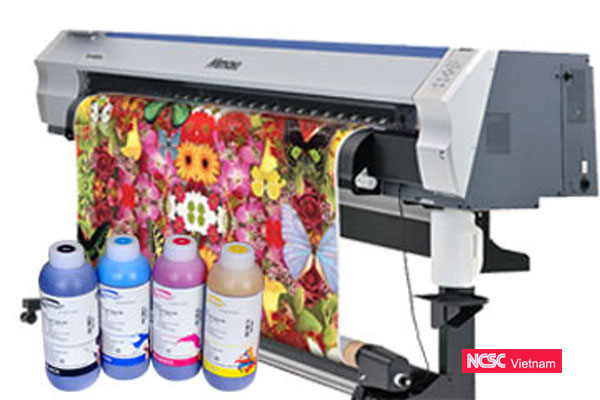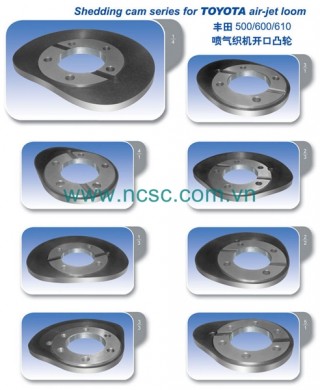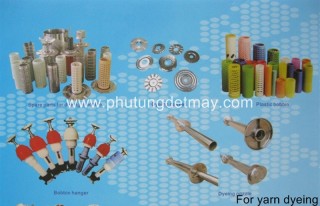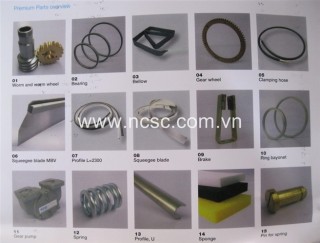Printing ink & how to choose ink according to fabric material
NCS Blog- Printing ink & how to choose ink according to fabric material Ink is an important ingredient in the quality of fabric products when printing on digital printers. Since printing ink has a high price, choosing the right ink to use will greatly affect the cost of products ... Depending on the type of fabric, the manufacturer has different ink choices.
Post date: 06-06-2019
2,669 view(s)
PRINT INK & HOW TO CHOOSE PRINT INK FOR EACH CLOTH MATERIAL
Not just one type of ink can be used for all fabrics. Depending on the different types of fabric, choose your own ink to suit and produce the best products:
There are 4 main ink lines in the market:
1. Water level : not prepared from oil, has a slight odor and uses water to clean up and dilute.
2. Oil ink : prepared from petroleum, it is characterized by a strong odor, smell, cleaning and diluting with oil based solvent. This ink Non-environmentally friendly and toxic ink.
3. Plastisol ink : is also the type of ink made from oil origin but has a slight odor like water-based ink, thanks to the polymer ingredients so soft and tough, need to use infrared dryer to be ripe.
4. UV ink : UV ink (Violet Ultra) is a type of ink when printed they are dried by UV radiation. It is still the type of ink on materials, but the ink dries through a completely different process. The composition of UV ink is quite different from ordinary ink. They include a mixture of oligomer monomers, reactive compounds, pigments and special substances needed in UV ink as photoinitiator lighters. Currently in the world, UV printing technology is gradually replacing the products printed with solvent and dye ink technology, ... Products from ink printers sovent, dye, ... are almost impossible to compete on quality. , longevity and color compared to products printed with UV printers.
a. Cotton fabrics, polyester, TC : are easy-to-print fabrics, commonly used, can use most types of ink for printing. However, the most used is still plastic ball ink system; This type can be easily purchased anywhere. There are diverse origins: Malaysia, Japan, Korea, India and most of Taiwan.
b. Nylon fabric In the past, oil-based ink was used for this type because Nylon had a very difficult color to bind. However, due to the bad smell of oil base, it is not good for health, high price; So today, people gradually switch to using "flexible plastic nylon" ink originating from the US or Japan such as Furukawa, ColorLab, Nylon Transparent or Nylon White ... very good quality.
c. Jean fabric : the most suitable ink for jean fabric printing is plastic water shadow, because it is easy to print but it is mandatory to wash it. There are 2 types of normal plastic and plastic jean (higher grip than normal plastic), to make planing and washing better, people often add DI Jean Catalyst (substance to increase adhesion); This substance can also help elastic plastic ink with toughness but firm grip like oil inks.
If designers demand higher quality than having to erase so that the original jean color becomes printed, it is recommended to use an ink called Jean Discharge. Note carefully when buying this ink is required to have 2 components: ink and bleach powder will be able to print.
+ Burlap fabric : is a kind of fabric which is difficult to attach to ink, often made of backpack and bag. In the past, people used oil ink, but as mentioned above, the toxic and foul-smelling oil ink, nowadays, the type of water separately prepared for printing on canvas is increasingly popular. There are some types of printing ink beautiful and surface like: School Bag, SHB ..., can print CMYK image too. But remember carefully the grip of the ink before printing.
+ Plastic windbreaker : is a fabric that has very difficult characteristics to attach to the ink due to the composition of nylon fiber so it is almost impossible to print ink. Only a few types of oil inks are able to adhere to the coat, so it is currently one of the most difficult to print fabrics.
-- st --











Send your comment